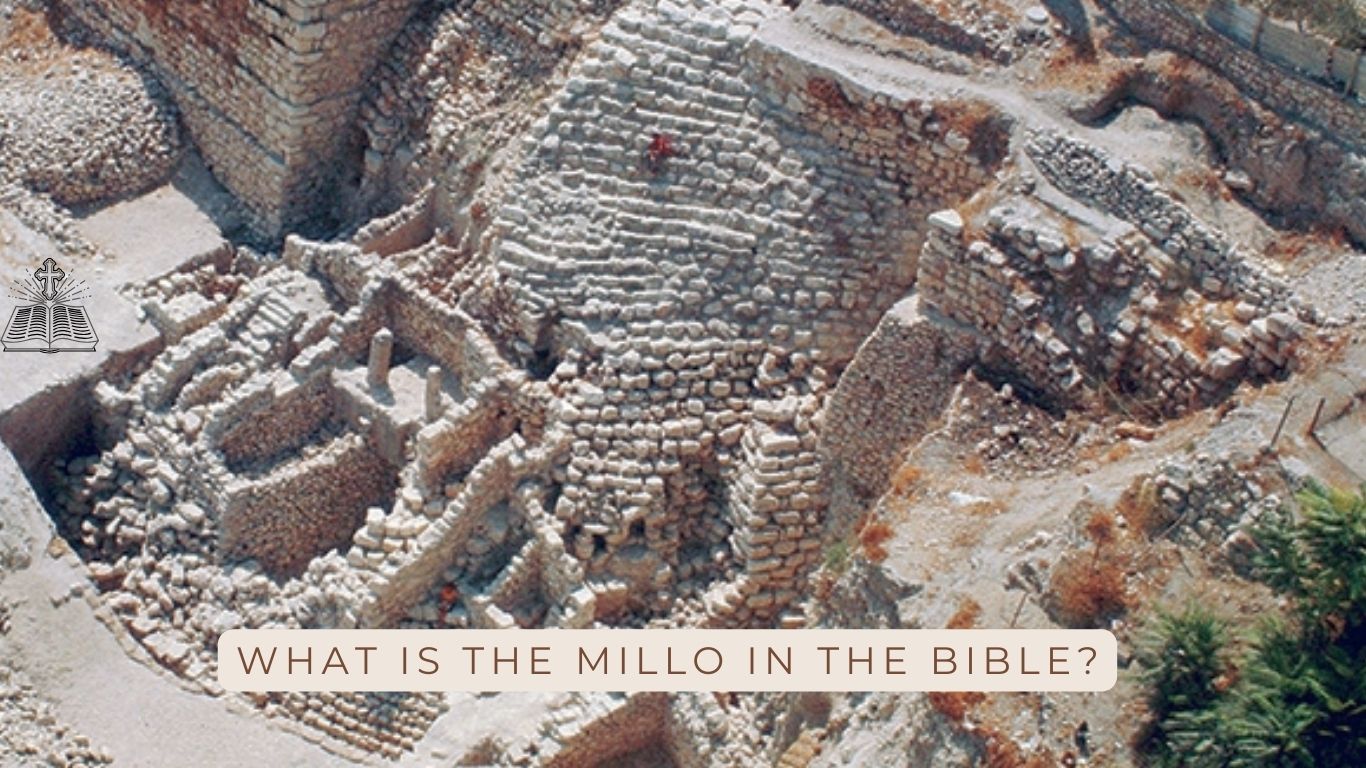 Have you ever held a Bible in your hands and wondered, Where did this all begin? Not just spiritually, but physically where was the first Bible made? Who actually wrote it? Was it printed, handwritten, or carved on stone? If you’re curious about the origins of this sacred book that has shaped history, cultures, and faith for over two millennia, you’re not alone.
Have you ever held a Bible in your hands and wondered, Where did this all begin? Not just spiritually, but physically where was the first Bible made? Who actually wrote it? Was it printed, handwritten, or carved on stone? If you’re curious about the origins of this sacred book that has shaped history, cultures, and faith for over two millennia, you’re not alone.
Ever wonder how this sacred book actually came together over thousands of years? Let’s walk through its incredible timeline.
A Word Before We Begin: What Do We Mean by “Bible”?
When people ask, “Where was the first Bible made?” the answer depends on what you mean by “Bible.”
If you’re asking where the first parts of the Bible were written, we’re talking about ancient scrolls penned over centuries in the Middle East.
If you mean where the first full Bible was compiled as one book, that came later.
And if you’re curious about the first printed Bible, that happened with Gutenberg in 15th-century Germany.
Here’s where things start to come alive piece by piece, story by story.
The First Bible Ever Written: Ancient Beginnings
So, who actually wrote the first Bible?
The Bible is not one book written at one time by one person. It’s a collection of books some historical, some poetic, some prophetic written over a span of about 1,500 years by more than 40 different authors, including shepherds, prophets, kings, fishermen, and apostles.
The Old Testament
The earliest texts go back as far as 1400–1200 BC.
They were written mostly in Hebrew, with some sections in Aramaic.
These texts were first recorded in the Ancient Near East places like Israel, Egypt, Babylon, and Mesopotamia.
Moses is traditionally believed to have written the first five books (the Torah or Pentateuch).
The New Testament
Written between 50–100 AD, primarily in Greek.
These letters and gospels came from places like Israel, Greece, Turkey, and Rome.
So, the earliest pieces of the Bible were not made in a single location they were spread across regions and centuries.
Where Was the First Complete Bible Made?
This part genuinely surprised me, I had no idea how early some full Bibles were already circulating.
The first complete Bible as in both Old and New Testaments compiled into one manuscript was likely the Codex Sinaiticus.
📜 Codex Sinaiticus – The First Complete Bible
Date: Around 330–360 AD
Language: Koine Greek
Made in: Likely Egypt, possibly in Alexandria
Material: Written on parchment (animal skins)
Fun Fact: It’s mind-blowing to think this ancient book spans more than 730 pages — all handwritten on animal skin.
It’s believed to have been produced under the commission of Emperor Constantine, who made Christianity the state religion of the Roman Empire.
Where is the original first Bible now?
Pieces of the Codex Sinaiticus are actually scattered across four different countries, a literal Bible puzzle spread across the globe.
British Library (London)
Leipzig University Library (Germany)
St. Catherine’s Monastery (Sinai Peninsula)
National Library of Russia (St. Petersburg)
If you’re wondering what the closest thing to the ‘original’ Bible looks like today, this one’s your best bet scattered across four countries.
The First Bible Ever Printed: Gutenberg’s Game-Changer
Fast forward a thousand years, when an invention in Germany would change history forever. But then came Johannes Gutenberg, a German inventor who changed the world.
🖨️ Gutenberg Bible
Date: Around 1455 AD
Place: Mainz, Germany
Language: Latin (the Vulgate translation)
Technology: First book ever printed using movable type printing press
So if you were wondering where the first printed Bible came from — yep, it all started in Gutenberg’s tiny German workshop.
Only 49 copies of the Gutenberg Bible survive today (some incomplete), and they are spread across libraries and museums in Europe and the United States.
Who Printed the First Bible in English?
That’s a great question, and it opens up a whole new chapter of Bible history.
William Tyndale – Bible Hero and Martyr
Year: 1526
Location: Worms, Germany
Notable for: First printed English translation of the New Testament from Greek.
Tyndale’s work was illegal in England, and he was eventually arrested and executed. But his efforts laid the foundation for the King James Bible a century later.
When Was the Bible Written and Who Wrote It?
Now take a deeper look at the key moments in this wild journey.
| Section | Approx. Dates | Language | Writers |
|---|---|---|---|
| Old Testament | 1400–400 BC | Hebrew, Aramaic | Moses, David, Isaiah, etc. |
| New Testament | 50–100 AD | Greek | Paul, John, Luke, etc. |
| Compilation | 300s AD | Greek | Scholars under Constantine |
| First Print | 1455 | Latin | Gutenberg |
| First English | 1526 | English | William Tyndale |
What Happened to the “Original” Bible?
Many wonder: “Who destroyed the original Bible?”
Sadly, we don’t have the original scrolls anymore, they were lost to time, like so many ancient texts. They likely didn’t survive the chaos of history, worn down by time, war, and centuries of being passed from hand to hand. No single person or group “destroyed” them deliberately, although early Christian texts were often targeted by Roman authorities.
Still, here’s the reassuring part that most people don’t realize.
We have thousands of manuscript copies from various time periods, which allow scholars to cross-verify accuracy.
The Bible is the most well-preserved ancient book in the world.
Over 5,800 Greek manuscripts, 10,000 Latin, and thousands in other languages still survive.
So, even though the originals are lost, the message remains incredibly well intact.
The First Bible Ever Found: Archeology and Discovery
If you’ve ever heard the phrase “The first Bible ever found,” it might be referring to the discovery of ancient manuscripts in the modern era.
One of the biggest discoveries?
Dead Sea Scrolls
Discovered: 1947, in caves near Qumran, Israel
Date of Texts: 300 BC to 100 AD
What they include: Nearly every Old Testament book
Language: Hebrew, Aramaic
What’s wild is how closely these ancient scrolls matched the Bibles we already had — centuries later.
Why This All Matters
Knowing where the first Bible was made and how it came to be is more than just trivia. It’s about understanding the roots of a book that has:
Changed laws and nations
Given hope to the hopeless
Connected people across time and language
It’s humbling to think that what started as ancient writings in the deserts of the Middle East now sits on shelves, nightstands, and apps all over the world.
Let’s circle back to our original question: Where was the first Bible made?
If you mean first written texts – Ancient Israel, Egypt, and surrounding areas (starting around 1400 BC)
If you mean first full Bible manuscript – Likely in Egypt, around 350 AD (Codex Sinaiticus)
If you mean first printed Bible – Germany, 1455 AD (Gutenberg Bible)
If you mean first English printed Bible – Germany, 1526 (Tyndale’s New Testament)
The Bible didn’t just appear it was shaped across centuries, cultures, and conflicts. And through it all, its message has endured.












